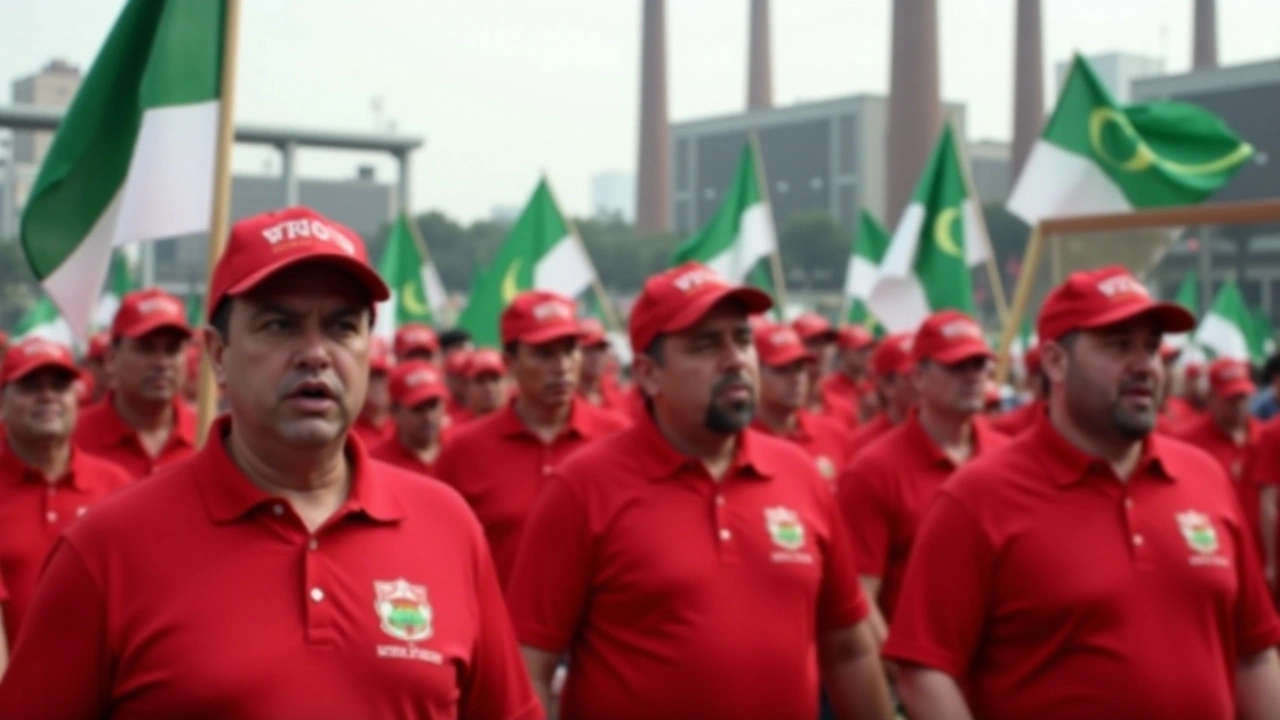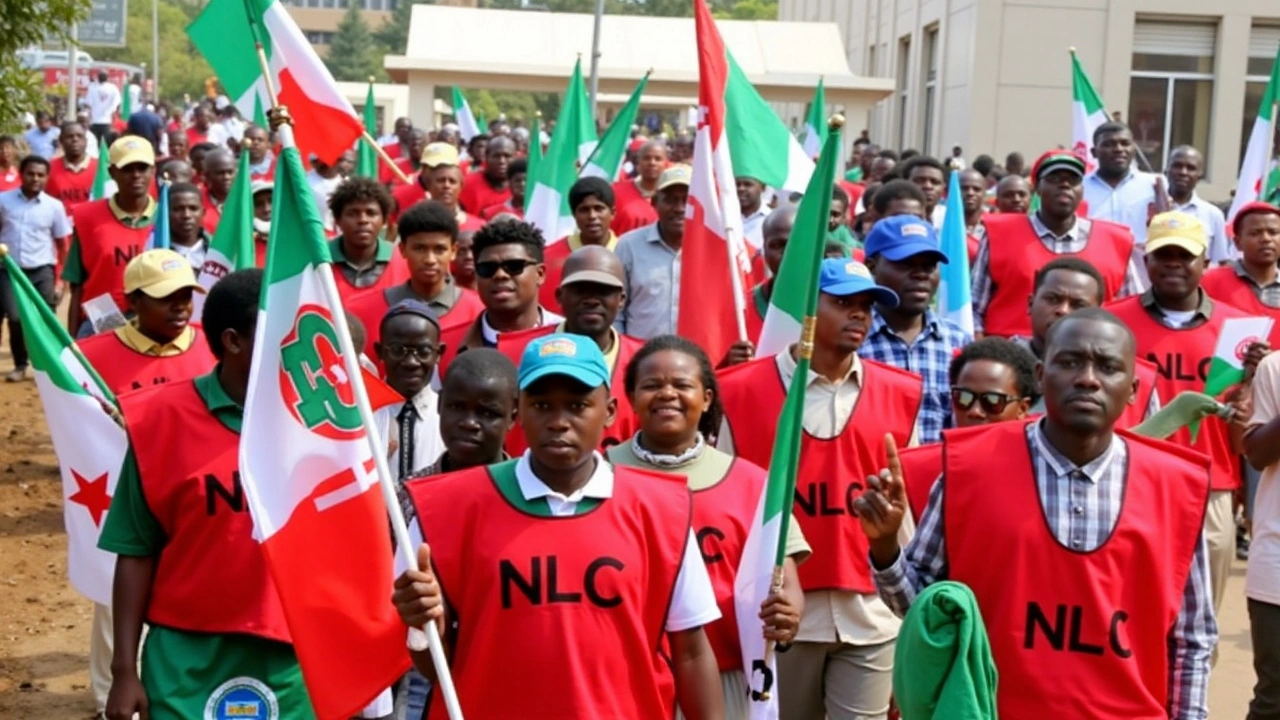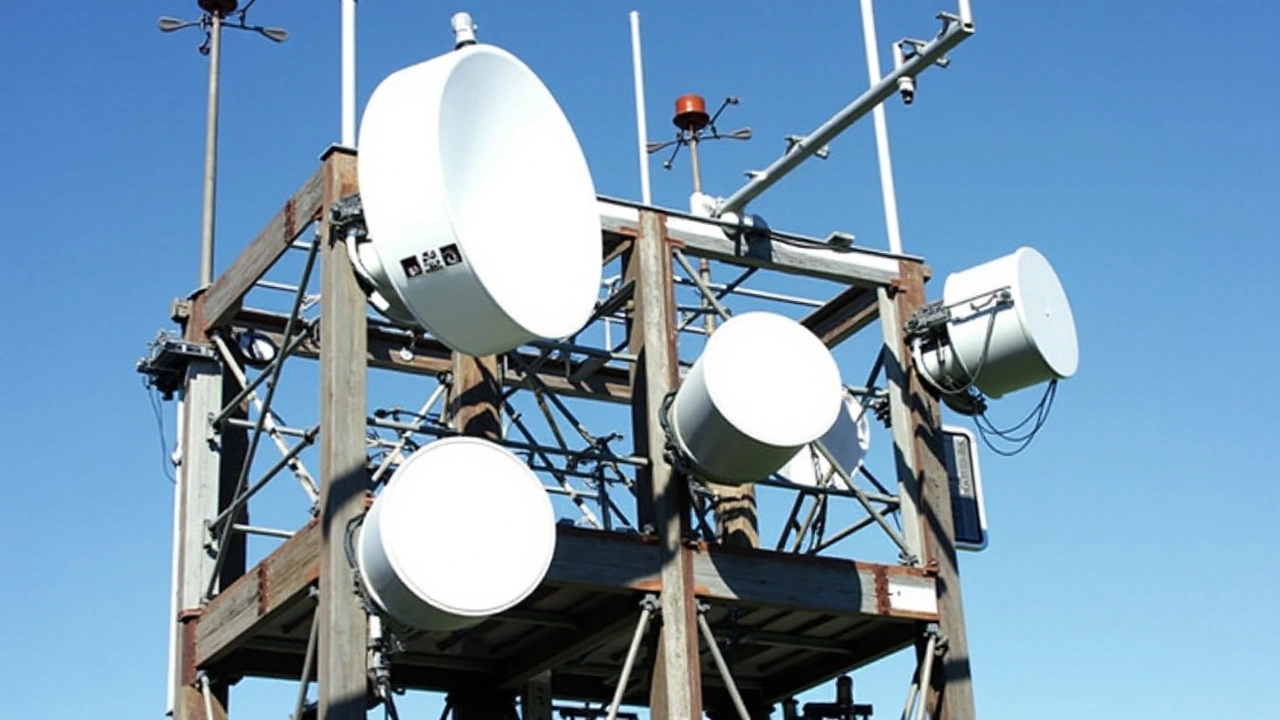1 Feb 2025
- 8 Comments
The Tariff Hike: A Critical Measure
The Private Telecommunications and Communications Senior Staff Association of Nigeria (PTECSSAN) has stirred the hornet's nest by supporting the recent 50% telecom tariff increase approved by the government. This decision, however, has not been met with open arms across the board. The union claims this price adjustment is nothing short of a lifeline for a sector battling mounting operational expenses. One could argue, and they do, that these mounting costs—spurred by the removal of fuel subsidies, escalated diesel prices, and increased electricity tariffs—demand an action that mirrors their impact. For PTECSSAN, the hike is more of a necessity than a choice. Reports indicate that the cost of diesel has shot up from N842.25 in May 2023 to an eye-watering N1,441.28 as of January 2025. Petrol prices, too, aren’t lagging too far behind, with a leap from N198 to over N1,030 during the same interval. Couple these figures with the depreciation of the naira, now standing at approximately N1,700 per US dollar from N460, and the financial health of the telecom sector begins to paint a dreary picture.

Industry Challenges and Worker Welfare
This isn't just a numbers game. There's more at stake than the balance sheets. The union’s cardinal concern hovers around the welfare of telecom workers. In contrast to their peers in both public and private sectors, who have relished salary hikes under the new minimum wage law, telecom workers face the stark reality of stagnant pay despite the escalating financial tempest. Moreover, the situation threatens not only employees but also the overall sustainability of the telecom sector. Without the cushion of additional revenue from increased tariffs, operators may be cornered into reducing services—decisions that could severely disrupt communications across Nigeria.
A Domino Effect on the Economy
The ramifications of a faltering telecommunications sector spread far and wide. Imagine widespread service disruptions cascading into finance, security, and other integral segments of the nation's economy. It's akin to pulling out one block from a Jenga tower and watching the entire structure wobble precariously. For PTECSSAN, preventing such an eventuality holds precedence. This clarification comes in the wake of apprehensions voiced by various quarters on the impact such a hike might have on ordinary Nigerians, who are already grappling with the soaring cost of living. It's a persuasive argument from the NLC.

Calls for Restraint
The National Association of Nigerian Students (NANS) echoes PTECSSAN’s stance, imploring the Nigeria Labour Congress (NLC) to reconsider its vigorous reaction towards the tariff rise. Armed with understanding and insight into the telecom sector's quandary, both bodies stress the necessity of maintaining the viability of telecom operations. Dialogue, they argue, remains the optimal route—voicing their dissent against the planned nationwide protest slated for February 7, 2025, a date of significance circled by NLC in response to a policy they describe as an unbearable burden on the populace.
The Stakeholder Dynamics
This tariff escalation wasn’t hatched in isolation. It's the culmination of extensive deliberations, with stakeholders across the board, including President Bola Ahmed Tinubu, weighing in amidst the ensuing turbulence. PTECSSAN calls for comprehension, stressing the deliberative nature of the process that led to this watershed moment. For them, this is a shared journey, one where the burden of sustaining an essential service is equally balanced yet invariably tilted by necessity towards the consumers—Nigerians—many of whom clasp their purses tighter as everyday costs stretch credibility and the family budget.
Understanding the broader context sets the stage for informed decision-making, balancing the scales between workers' welfare, sector stability, and consumer affordability. Clearly, the road ahead demands prudence, foresight, and a collaborative approach, as these entities push to uphold both the telecom industry's integrity and everyday Nigerians' interests.


Ron Rementilla
February 1, 2025Looking at the numbers, a 50% hike isn’t just a random jump; diesel and petrol have skyrocketed and the naira’s slump is draining every operator’s margin. The union’s point about covering rising operational costs makes sense when you line up the fuel price charts side by side with the tariff proposal. Still, slapping a half‑price increase on consumers feels like a blunt instrument that could backfire if people start throttling their data usage. In practice, that could shrink the revenue base even more, creating a vicious cycle. The real challenge is finding a middle ground that sustains the network without crushing users’ wallets.
Chand Shahzad
February 1, 2025Indeed, the fiscal pressures on the sector are undeniable, and a collaborative dialogue is essential before any drastic measures are implemented. While the union highlights legitimate cost concerns, it is equally vital to safeguard affordability for students and low‑income households who rely heavily on mobile data for education. A phased approach, perhaps coupling modest tariff adjustments with targeted subsidies, could mitigate the shock. Moreover, transparent reporting on how the additional revenue will be allocated will build trust among all stakeholders. Let us strive for a solution that balances operational viability with social responsibility.
Eduardo Torres
February 2, 2025The student community is already feeling the pinch of rising electricity bills, and adding a telecom surcharge could limit access to online resources. Many campuses depend on affordable data plans for remote lectures and research, so a sudden jump may widen the digital divide. It’s worth noting that some private operators have introduced tiered pricing models that could serve as a template here. By offering lower‑cost bundles for basic services, we can keep essential connectivity alive while still generating needed revenue. Let’s keep the conversation focused on practical alternatives that protect educational continuity.
Emanuel Hantig
February 3, 2025That’s a thoughtful take, and it resonates with the broader principle that connectivity is a public good. When we look at the ripple effects-banking, security, even emergency services-a crippled network hurts everyone, not just the end users. It’s a philosophical question: do we prioritize short‑term profit or long‑term societal stability? The answer, I believe, lies in a balanced policy that cushions workers while keeping services affordable 😊. Open forums with all parties could surface innovative financing ideas, perhaps even leveraging green energy incentives to lower operational costs. In the end, collaboration will be the key to a sustainable outcome.
Byron Marcos Gonzalez
February 3, 2025Ah, the drama of a nation’s lifeline being auctioned off to the highest bidder! One can almost hear the clinking of coins as regulators toss the dice of destiny. Yet beneath the theatrical veil lies a stark reality: when the price of connection climbs, the very fabric of daily life begins to fray. Imagine a world where your morning coffee is cheaper than a text message-pure absurdity! The stakes are high, the rhetoric higher, and the stakes higher still. Let us not drown in melodrama but cut to the chase: who truly benefits when the masses pay the price?
Chris Snyder
February 4, 2025From an industry standpoint, there are a few levers we can pull without resorting to steep price hikes. Investing in renewable energy sources can lower diesel dependence, while improving network efficiency reduces operational waste. Additionally, regulatory bodies could explore partial tax relief for telecom firms that commit to affordable pricing tiers. These steps have been successful in other emerging markets and could be adapted to our context. Ultimately, a data‑driven approach that monitors usage trends will allow operators to adjust rates responsibly.
Hugh Fitzpatrick
February 4, 2025Great, another reason to cancel my Netflix binge.
george hernandez
February 19, 2025Listen, the whole saga of telecom tariffs feels like a never‑ending saga where each chapter writes itself in the ink of desperation and optimism interwoven like a tapestry of hope and dread; we start by acknowledging that the cost of diesel surged beyond recognition and that the naira’s tumble has left operators scrambling like jugglers in a storm; then we pivot to the reality that workers, who should be the backbone of this industry, find themselves stuck in a static salary maze while inflation dances around them like a mischievous sprite; next we examine the ripple effect on students whose academic pursuits hang on the slender thread of affordable data, a thread that could snap under the weight of half‑price hikes; further, we consider the broader economic consequences, where a crippled network could send shockwaves through finance, security, and everyday commerce, turning a simple call into a distant memory; after that, we explore alternative solutions such as renewable energy adoption, network efficiency upgrades, and tiered pricing models that could provide relief without stifling growth; subsequently, we highlight the importance of transparent dialogue between unions, regulators, and consumers, emphasizing that secrecy only fuels mistrust; then we underscore the role of government incentives, perhaps even tax breaks, to ease the burden on operators while preserving consumer affordability; finally, we circle back to the core principle that connectivity is not a luxury but a lifeline, a conduit for knowledge, safety, and progress; in conclusion, the path forward demands collaboration, innovation, and a steadfast commitment to balance the scales between profit and public good.